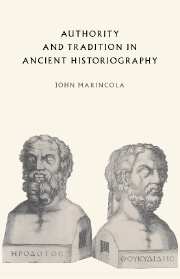Book contents
IV - THE HISTORIAN'S DEEDS
Published online by Cambridge University Press: 29 January 2010
Summary
Up to this point our concern has been how the ancient historian justifies himself before his audience and attempts to portray himself as the proper person for the writing of history, that is, with his role as narrator rerum. The present chapter examines how he approaches his task when a participant in the very deeds he records, and how he reconciles the dual role of actor and auctor rerum. For in fact many historians of the ancient world had the opportunity to be both participant and rememberer. The historian's formal method of presenting himself has received comparatively little attention, yet it is of interest not only because it tells us something of the way that men who wrote history in the ancient world approached the writing of their own deeds, but also what their concerns were in doing so. It is usually assumed that in order to give authority to his account, an historian who narrated his own deeds used the third person and maintained a show of formal impartiality. But a study of the surviving (and partially surviving) historians reveals a variety of approaches and methods, changing with time, the specific type of history written, and the individual intention of the historian himself.
- Type
- Chapter
- Information
- Authority and Tradition in Ancient Historiography , pp. 175 - 216Publisher: Cambridge University PressPrint publication year: 1997
- 1
- Cited by



